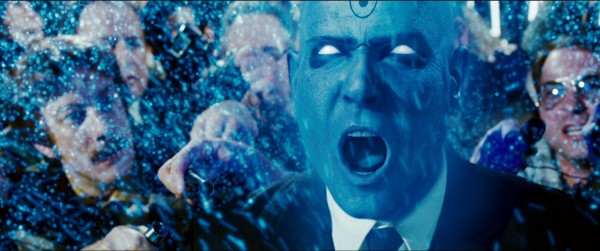Ever since screen adaptations began, it has been widely accepted that there are adaptations that will work, and there are adaptations that are doomed from the start. Modern examples of when this range from the hugely successful Life of Pi, to the disappointing (but wildly ambitious) Cloud Atlas. Needless to say, adapting the ‘unfilmable book’ is a risk often worth taking, but is one that can leave filmmakers floating downstream without a paddle.
It has recently been announced that Guillermo Del Toro will be adapting Kurt Vonnegut’s Slaughterhouse Five, one of the many novels to be included in the ‘unfilmable’ book club, despite the successful adaptation, of which Vonnegut was reportedly satisfied with, by George Roy Hill in 1972. Discussion about whether this novel could reach it’s cinematic potential has resurfaced since Del Toro’s announcement. Aiding him will be Charlie Kaufman, the master of creating scripts out of seemingly incoherent and confusing ideas, and somehow forming them into a satisfying piece of work. Although it is one of his weaker scripts, it would be criminal not to mentioning Kaufman’s Adaptation. In the film starring Nicholas Cage, in which he plays Kaufman, he explains the pain of being paid to adapt an ‘unfilmable’ book. In the end, Kaufman has managed to create a film script by allowing the book’s material to act as inspiration, rather than the be-all and end-all of an adaptation.
So what can those that say “That book’s unfilmable!” learn from Kaufman’s experience? That the truth is, no unfilmable book has ever managed to reach it’s potential without a director with a great vision of his own. More importantly, one that is separate from the book’s overall intention. The two worlds mustn’t try to be one of the same. Instead, they should become separate works of art that work towards different goals. Stanley Kubrick was known for being the master of adaptation and he only ever used the original material as inspiration. This was to such an extent that Stephen King notoriously despised The Shining, a film which is hailed by many as a masterpiece. His hatred resulted in a secondary, King-approved version being made in 1997. This version, as you would expect, is faithful to the original material and can, therefore, only be a simplified, unsurprising version of a great novel. Who wants to simplify something they already love? Asides from the dramatically altered ending, isn’t this the same problem with Snyder’s Watchmen?
The reason this can work so well is simple. The major problem with novel adaptation is that the medium that the story works best is on the page. It means that if we didn’t have the source material for such works as Cloud Atlas and Watchmen, to name a few, we would probably have thought they were fantastic films. However, watching the film that doesn’t amount to the amazing work of the novel is like being in a conversation with someone you know inside out, except they seem removed and something seems wrong. You can tell that there is a lack of depth and you painstakingly search for a reason why.
The good news is that times are changing. It is notable that Terry Gilliam wanted to adapt Watchmen in to a mini-series a few years ago, but was turned down. Instead, we ended up with a hyper-stylised and somehow vacuous version of the most celebrated graphic novel in history. Nowadays, the division between film and televisual quality is getting thinner and, whilst that has its disadvantages, it means that more books are finding their appropriate mediums. Take televisual success stories such as Homeland, Masters of Sex and Game of Thrones, to name a few. It’s likely that back when signing a deal to get your book turned into a television show meant compromising it’s potential quality. The intricacies of such stories have been able to develop in a period of screen-time that is more appropriate and, in turn, makes them better pieces of art. The possibility that an adaptation could be a failure is always going to exist, but it seems as though we are progressing to a time where studios are thinking about how to conquer the problems, ridding themselves from an attitude which has prevented some of the most intelligent and complicated books from making it into our cinemas.




Del Toro is dedicated to the unfilmable. His ongoing flirtation with Lovecraft’s “At the Mountains of Madness” is simply more evidence of the same.
LikeLiked by 1 person